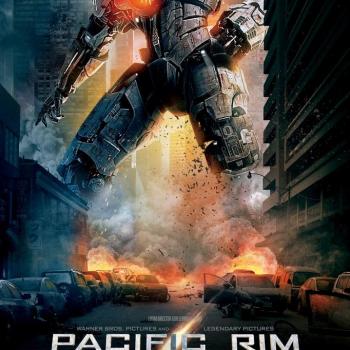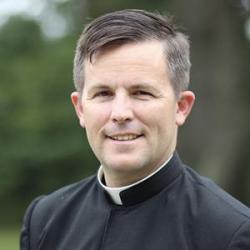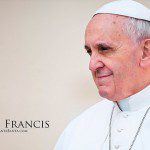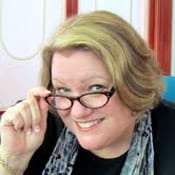I do think that Catholics have become far too reliant on the mainstream media to learn about who they are and what they are all about, but one can't simply pass judgment on the media in this regard. Why isn't the Church the source for information about its own identity and mission? Are we speaking to our own people in ways that lack the ability to hold the attention of our own faithful? Are we speaking to the culture in such a way that our message is rendered unintelligible? If so, are we all that surprised that the media gets us wrong? All this being said, I do think that if the Church doesn't tell its own story who will? Likely the Church's story will be told be those who do not understand the Church, are suspicious of it, or openly hostile. We can decry this as an injustice, but if we offer no alternative, the fault is our own. We also can't wait around for the mainstream media to get our story right; Catholics have to tell the Church's story and we have to learn how to tell it well.
If we are truly faithful, the story of the Church is something that we will never tire of sharing with others. I would say that it is correct to understand the Catholicism series, book, and study program as providing an example to the faithful of not only how compelling and rich the story of the Church is, but how this story lends itself to a bold and captivating presentation. If there is a challenge in the Catholicism series it is not just to demonstrate to the mainstream media that the Church is more than they think it is, it is also a challenge to Catholics to make the case for the Church to the culture, and to do so with honesty, intelligence, enthusiasm, and joy.
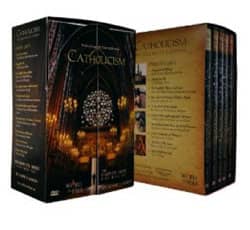 The book is clearly meant to be more than an extraneous companion to the series; it stands on its own as a kind of "overview" of a "long view": how we can see everything since the first words of Creation as one long Catholicism Project, a continual process of Incarnation, as you write, "through space and time."
The book is clearly meant to be more than an extraneous companion to the series; it stands on its own as a kind of "overview" of a "long view": how we can see everything since the first words of Creation as one long Catholicism Project, a continual process of Incarnation, as you write, "through space and time."
You are right about the book. It is not extraneous, but with the study program is integral to the experience of the Catholicism series. As far as seeing everything, I realized at the beginning of this project that showing and explaining everything about the Catholic Faith would not be possible. However, what I could do is show something and more than this, show what is essential and important.
The book presents, like the series, a personal view, an approach that has its strengths and limitations. It might be best to think of Catholicism as a route of access into the Catholic Faith, rather than an exhaustive survey of everything. I am opening the door, letting folks in, and helping them to navigate the vast Catholic space that they have entered. There will always be more to the Church than can ever be told in one documentary, book, or study program, and because of this breadth of content, the Catholic Faith just holds our attention and will not let go.
You say in the book that you are seeking to give us Catholicism from the mystagogue's perspective; how could you trust the reader to be able to follow and engage on the mystic's level?
Anyone who has ever wondered at the mystery of their existence, which is most everyone, has the potential to be a mystic, so I wouldn't mistrust the capacity of the reader of the book to appreciate the mystical potential of the Catholic experience. However, in accord with the wisdom of Catholic spirituality, all who aspire to comprehend the mystical content of the Faith must be grounded by a trustworthy spiritual director, a guide who knows the Tradition and can help to discern between what is genuine and what is merely a flight of fancy; so when I refer to my role as that of a mystagogue, I am offering myself as a kind of spiritual director for the reader. I am also making a point that one can study the Catholic Faith as one studies literature or sociology, and in this study one can attain profound insights. But if this is the sole approach one takes in a study of the Catholic Faith, the end result will be limited to say the least. In identifying my role as that of a mystogogue, I am insisting that the way to understand Catholicism is not as simply a dispassionate observer but as a fully engaged participant in the great mysteries of the Faith.
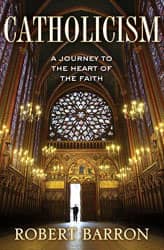 Early in the book you make a claim that some might find startling: ". . .we are destined for divinization [and this is why] Christianity is the greatest humanism that has ever appeared, indeed that ever could appear." How does this relate to our modern humanist concepts of self-actualization? Does it answer those concepts, or transcend them?
Early in the book you make a claim that some might find startling: ". . .we are destined for divinization [and this is why] Christianity is the greatest humanism that has ever appeared, indeed that ever could appear." How does this relate to our modern humanist concepts of self-actualization? Does it answer those concepts, or transcend them?
